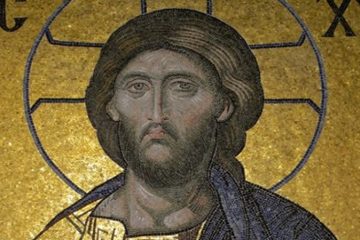Hierodeacon Rafael Misiaoulis, Theologian
‘I forgave you all the debt, because you pleaded with me’.
Today’s Gospel reading is known as the parable of the 10,000 talents and in it we see both the kindness and mercy of God and also the harshness of people. The occasion for this parable was Saint Peter’s question to Jesus concerning the number of times we should forgive those who have wronged us. Should it be up to seven times?
The parable presents a servant up to his neck in debt to a local ruler. The latter forgives him his debt. Absolutely overjoyed, the servant makes his way home. There he meets a fellow-servant, who owes him a hundred dinars, a small sum compared to that which the king had forgiven. He asks for the money and, when the man is unable to pay, has him put in prison. When the other servants see what happened, they’re troubled by it and mention it to the king. He in turn summons his harsh and mean servant, to whom he had shown understanding and forgiveness and says to him: ‘You wicked servant. I forgave you all that debt because you pleaded with me. Should you not have had mercy on your fellow-servant, as I had on you?’. The events of the parable present us with serious issues regarding the quality of our life and of the salvation of our soul.
In life, we often ask God’s help and he provides it. At the same time he’s merciful to us, shows us his love and forgives us all our great spiritual debts, our sins. So by the same token, we should behave in the same way to other people and forgive them for what they’ve done to us, because the virtue of forgiveness is one of the greatest that people can acquire in their lives.
In his interpretation of the attitude of the man who owed the 10,000 talents, Saint John Chrysostom remarks that the cause was the terrible passion of vengeance, which darkens people’s minds and leads them into actions which harm and destroy them. The man who owes him begs him, asks for more time, humbles himself before him and falls at his feet. But he shows no trace of kindness. This particular type of person is an example of how not to behave. Unfortunately, we can see such behavior in society, people who are hard-hearted, bitter and hostile. People who persistently demand punishment and revenge, or even the physical annihilation of others, if they believe that that’s a way of wreaking punishment or revenge. They’re deceived in the most terrible way and, in essence, are punishing and harming themselves. Saint John Chrysostom says that there’s nothing worse than spite. It estranges people from God, from themselves and from other people. It’s a passion that produces anger and rage, which upset people internally and create turmoil and darkness in the mind.
And so our Lord Jesus Christ teaches us the great lesson of tolerance and forgiveness. What does tolerance really mean? It means that we put up with and bear the harm which other people do to us. It also means a genuine attitude: not merely not to remember the harm that’s been done to us and not to seek revenge, but also to forgive those who harm us and to repay with kindness the wickedness they’ve done to us.
Christ’s teaching today is an important occasion and opportunity for us to reassess our attitude to God and to other people; to reevaluate our progress, and the way we think and live as Christians. We often think that our spiritual life is a matter of individual concern, that it has nothing to do with anybody else nor with society as a whole. Yet, on our own we can’t apply anything that’s written in the Gospel nor any of the Lord’s commandments.
Our chief characteristic as Christians is love and that we know how to forgive. If we want to be, not merely to be called, true Christians, real people, then we should always follow the blessed path of love, of forgiveness and tolerance. It’s the path of salvation, the path of glory. It’s the path of him who opened it for us on the Cross with his holy words: ‘Father, forgive them…’ leaving an eternal example of forbearance.
Source: pemptousia.com




0 Comments